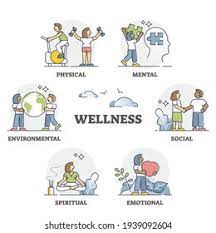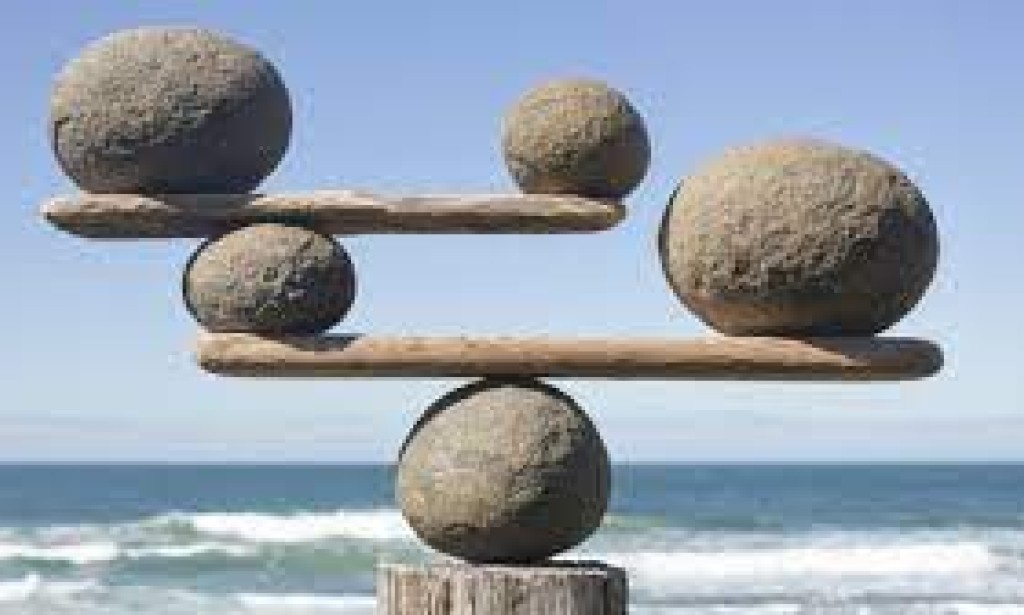Physical Health and Wellness:
Prioritizing physical health is foundational to a balanced lifestyle. This includes regular exercise, a balanced diet, adequate sleep, and proper hydration. Incorporating diverse forms of physical activity, from yoga and weight training to outdoor activities like hiking or swimming, not only improves physical fitness but also boosts mental well-being.

Mental and Emotional Well-being:
Cultivating mental health involves practices that reduce stress, promote mindfulness, and enhance emotional resilience. This can be achieved through meditation, mindfulness exercises, therapy or counseling, journaling, and engaging in activities that foster creativity and relaxation. Managing stress levels is pivotal for maintaining emotional equilibrium.
Healthy Work-Life Balance:
Balancing professional commitments with personal life is crucial. Establishing boundaries, managing time effectively, and avoiding overwork help in maintaining this balance. Incorporating breaks, setting realistic goals, and prioritizing tasks contribute to a healthier relationship with work.
Meaningful Relationships:
Nurturing relationships with family, friends, and the community is integral to a balanced lifestyle. Spending quality time with loved ones, practicing empathy and active listening, and fostering meaningful connections create a support system that enhances overall well-being.
Continuous Learning and Personal Growth:
Pursuing personal interests, hobbies, and lifelong learning fosters personal growth. Engaging in activities that challenge and stimulate the mind, whether it's learning a new language, exploring arts and crafts, or acquiring new skills, contributes to a sense of fulfillment and growth.
Spirituality and Mindfulness Practices:
For many, spirituality or mindfulness practices provide a sense of purpose and inner peace. Whether through religious practices, meditation, or connecting with nature, these practices often serve as anchors, offering solace and guidance in navigating life's challenges.
Self-Care and Stress Management:
Self-care rituals and stress management techniques differ for each individual. It could involve taking breaks, practicing self-compassion, indulging in hobbies, seeking support when needed, or simply allocating time for relaxation and rejuvenation.
Financial Stability and Planning:
A balanced lifestyle often involves financial stability and planning. This includes budgeting, saving for the future, and making informed financial decisions. Financial security contributes to reduced stress and provides a sense of stability.
Contributing to Community and Society:
Giving back to the community or contributing to societal causes often adds a sense of purpose and fulfillment. Volunteering, engaging in philanthropy, or actively participating in community initiatives aligns with the concept of a balanced lifestyle by fostering a sense of connection and purpose beyond oneself.
Adaptability and Flexibility:
Being adaptable and flexible in the face of life's changes and challenges is crucial. It involves embracing change, learning from setbacks, and maintaining resilience to navigate transitions effectively.
Creating and maintaining a balanced lifestyle involves an ongoing journey of self-discovery and self-care. It's about consciously nurturing various aspects of life to create a holistic and fulfilling existence. By incorporating these elements and adapting them to individual needs, one can cultivate a lifestyle that promotes well-being, fulfillment, and overall happiness.
Setting Priorities and Boundaries:
Understanding personal values and setting clear priorities help in making informed decisions and allocating time and energy effectively. Establishing boundaries, whether in relationships or work commitments, is crucial to maintain balance and prevent burnout.
Mindful Technology Use:
Integrating technology mindfully can contribute to a balanced lifestyle. Setting limits on screen time, practicing digital detoxes, and using technology to enhance productivity or connect meaningfully with others rather than as a constant distraction can promote a healthier balance.
Cultivating Gratitude and Positivity:
Practicing gratitude and focusing on positive aspects of life can significantly impact overall well-being. Regularly acknowledging and appreciating the good in life, maintaining an optimistic outlook, and reframing challenges as opportunities for growth fosters resilience and contentment.
Quality Rest and Relaxation:
Prioritizing quality rest and relaxation is essential for recharge. This involves not only sleep but also intentional breaks, hobbies, or activities that relax the mind and body, such as reading, spending time in nature, or engaging in creative pursuits.
Embracing Imperfection and Self-Compassion:
Accepting imperfections and being kind to oneself is vital in maintaining mental and emotional balance. Practicing self-compassion during times of stress or failure helps in bouncing back and fostering a healthier self-image.
Environmental Consciousness:
Consideration for the environment contributes to a balanced lifestyle. Making eco-conscious choices, such as reducing waste, conserving resources, and supporting sustainable practices, aligns personal well-being with a sense of responsibility toward the planet.
Regular Health Check-ups and Preventive Care:
Prioritizing health through regular check-ups and preventive care is a proactive approach to maintaining balance. Monitoring physical health, addressing potential issues early, and adopting preventive measures contribute to overall well-being.
Flexibility in Goals and Expectations:
Flexibility in goals and expectations allows for adaptation to changing circumstances. This involves setting realistic expectations, being open to adjustments, and understanding that perfection isn’t necessary for a fulfilling life.
Meaningful Time Management:
Efficient time management contributes to a balanced life. Prioritizing tasks, delegating when possible, and focusing on important, rather than merely urgent, matters allows for a more balanced use of time and energy.
Self-Reflection and Evaluation:
Regular self-reflection and evaluation help in assessing progress and making necessary adjustments. Understanding what works and what doesn't, and being open to reassessing priorities, assists in maintaining a balanced lifestyle.
Ultimately, a balanced lifestyle is unique to each individual and evolves over time. It involves a conscious effort to align various aspects of life in a way that promotes well-being, fulfillment, and a sense of purpose. By integrating these strategies and personalizing them according to individual preferences, one can navigate life’s complexities with more ease and satisfaction.



You must be logged in to post a comment.